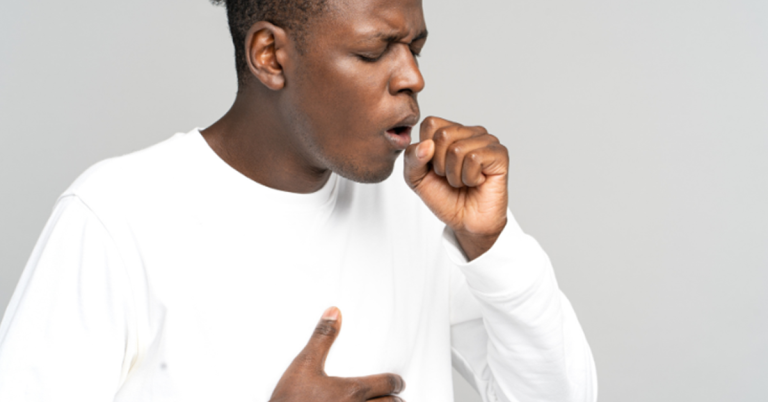

Coughing is a common symptom that occurs when our bodies try to expel irritants from our respiratory system. It can be caused by various factors such as allergies, infections, or even a simple cold.
While coughing is often associated with the familiar sound and sensation, some individuals also experience an unusual symptom: a metallic taste in their mouth. In this article, we will delve into the reasons behind this peculiar phenomenon and explore the potential underlying causes.
Several factors can contribute to the metallic taste experienced during coughing. Here are some of the most common causes:
Coughing forcefully or persistently can sometimes lead to small injuries in the respiratory tract, such as minor nosebleeds or irritation in the throat. The presence of blood can give rise to the metallic taste you perceive. Although it may seem alarming, these injuries are typically minor and tend to heal on their own.
Read: Taste Blood When Running
Certain medications, such as antibiotics, can induce a metallic taste as a side effect. If you have recently started a new medication and noticed the metallic taste coinciding with it, consult your healthcare provider. They may be able to suggest alternative medications or adjust your dosage to alleviate this side effect.
Respiratory infections, like sinusitis or bronchitis, can cause inflammation in the respiratory tract. This inflammation can trigger a metallic taste sensation when you cough. The taste is usually a temporary symptom that will subside as the infection resolves.
If you have allergies or asthma, coughing can be accompanied by wheezing and a metallic taste in the mouth. Allergic reactions and asthma attacks can lead to increased mucus production, which, when coughed up, can contribute to the metallic taste. Managing your allergies or asthma with appropriate medications and avoiding triggers can help reduce these symptoms.
Gastroesophageal reflux disease (GERD) or acid reflux can cause stomach acid to flow back into the esophagus, leading to a sour or metallic taste. Coughing can exacerbate this condition and trigger the taste sensation. Making dietary and lifestyle changes, such as avoiding acidic foods and beverages, can help manage acid reflux and minimize the metallic taste.
While the metallic taste during coughing can be bothersome, there are additional strategies you can employ to alleviate or minimize it. One such solution is using MetaQil oral rinse, which has been specifically formulated to combat metallic taste sensations.
MetaQil oral rinse offers a simple and effective way to neutralize the metallic taste in your mouth when coughing. It works by temporarily binding to the metallic ions responsible for the taste, providing you with relief. Here’s how you can incorporate MetaQil into your routine:
By incorporating MetaQil oral rinse into your routine along with other strategies, you can effectively alleviate the metallic taste when coughing. Remember, it’s always advisable to consult with your healthcare provider if you have any concerns or if the metallic taste persists or worsens over time.
Take control of your taste sensation with oral rinse and regain your enjoyment of food and beverages without the unwelcome metallic flavor, even during coughing episodes.
While a metallic taste during coughing is often harmless and transient, there are instances where medical attention may be warranted. Consult a healthcare professional if you experience any of the following:
While coughing is often a temporary annoyance, experiencing a metallic taste in the mouth during coughing can be disconcerting. It can result from various factors, including the presence of blood, inflammation, infections, medications, or underlying medical conditions. Understanding the potential causes can help individuals determine whether their symptoms warrant medical attention.
If you consistently experience a metallic taste during coughing or notice persistent coughing with concerning symptoms, consulting with a healthcare professional is advised. Remember, your health is precious, and seeking appropriate medical care is always the best course of action.